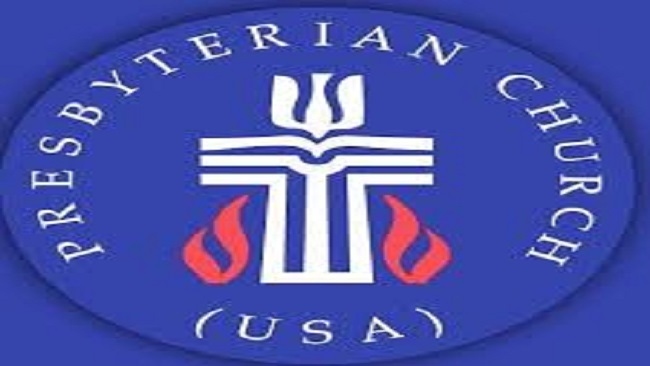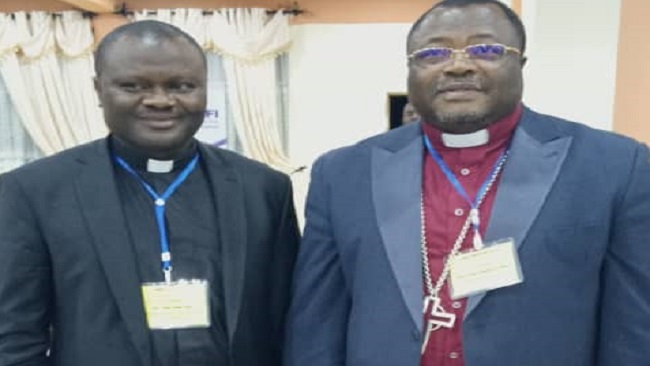3, December 2019
US: Presbyterian Church Stated Clerk issues Call to Prayer for Cameroon 0
Dear Friends in Christ,
Deeply troubled by recent events in Cameroon, I would invite all Presbyterians to join me in praying for justice, peace, and security for the people of Cameroon.
I know that there are many in the Presbyterian Church (U.S.A.) who are painfully aware of the ongoing legacies of colonial rule in Cameroon, a modern nation created with regionally distinct French- and English-speaking communities. We have watched with alarm as initially peaceful protests by lawyers and teachers concerning the erosion of the Anglophone identity in the judicial and educational sectors were met with force. In the absence of dialogue, positions hardened and violence has intensified over the past three years with a call to create an independent nation and the formation of militias.
Since the presidential elections in October 2018, violence and armed attacks have spread from rural areas into cities such as Buea and Bamenda, regional capitals for areas that are home to the country’s Anglophone minority. At least 200 villages have been raided, and farms, hospitals, and schools have been burned and partially or entirely destroyed. Children are unable to attend school as more than 80 percent of the Presbyterian schools in Northwest and Southwest regions are not operating for the fourth year now. Presbyterian World Mission and Presbyterian Hunger Program have provided strong accompaniment to our partners in Cameroon who are caught in this crisis.
According to the office of the United Nations High Commissioner for Refugees, roughly half a million people have been internally displaced in Cameroon, while more than 35,000 have fled across the border into neighboring Nigeria. Those displaced struggle to survive. Often, they sleep outdoors or live in makeshift shelters in forests and other remote locations. Some find temporary accommodation with friends or family members, but their presence imposes additional strains on vulnerable households with limited resources.
Humanitarian agencies, including ecumenical bodies, have been working diligently to address the underlying tensions and to provide security and relief to those displaced. Presbyterian Disaster Assistance, in particular, seeks to address basic needs for food, clothing, bedding, and hygiene among those who have fled to Nigeria.
Let us pray for our sisters and brothers in Cameroon and, in particular, for those who have been forced to flee their homes. Let us remember, too, our global partners in both communities in Cameroon — the Presbyterian Church in Cameroon (PCC), the Eglise Presbytérienne Camerounaise (EPC) and RELUFA, and ecumenical bodies working in the region. May God grant them gifts of wisdom, compassion, and discernment that they may find ways, together and separately, to advance justice, peace, and reconciliation for all of Cameroon’s people. Please pray further for Cameroon’s political leaders and security personnel, that they may put aside personal interests and prejudice to provide equal protection and opportunities for all citizens, regardless of their backgrounds.
I would also invite those who feel able to do so to contribute to Presbyterian Disaster Assistance’s support for Cameroonian refugees through gifts to account DR000168. Please designate your gift for “Humanitarian Assistance Cameroon.”
Let us look to God, our help, our hope, and our salvation.
Source: PCUSA


























13, December 2019
Bishop of Bafang condemns deteriorating human rights situation in Cameroon 0
Cameroon’s leading prelate has condemned the “deteriorating” human rights situation in the African country.
Speaking during a Dec. 10 workshop on the state of human rights in Cameroon, Bishop Abraham Kome of Bafang, the president of the bishops’ conference, said freedom of political expression has been significantly limited.
“We have seen the difficulty with which political parties have to manifest. We see – and I say this with a lot of emotion – when we visit our country’s prisons, what we see there is poor infrastructure, poor treatment of inmates, and overcrowding in prison cells. When one sees that, one can only affirm, if one has to speak the truth, that human rights have deteriorated in our country,” he said.
The bishop’s comments came just days after the country’s National Commission on Human Rights and Freedoms published its 2018 human rights report in Cameroon.
The report documented arbitrary killings, forced disappearances, and a crackdown on political freedom; as well as noting the limited access to justice for aggrieved persons.
Currently, the government is fighting two major internal conflicts: The first against separatists in the country’s Anglophone regions, and the second against Boko Haram militants in the north.
The report said that in these regions, human rights have been grossly violated, both by insurgents and the country’s military.
“The climate of insecurity degenerated into allegations of violations of the right to life and to physical and moral integrity of persons and property; violations of the right to education, health, private property and access to administrative services and to a fair trial of suspects and the deplorable detention conditions,” the report states.
It further indicated that between January and December 2018, “close to 200 civilians were killed by separatists and government soldiers in the Anglophone regions alone.”
The war that started in 2016 as a protest by Anglophone lawyers and teachers over attempts to destroy the education and common law systems practiced in English speaking regions quickly degenerated into an armed rebellion with many English speakers demanding for outright independence.
The Chairman of the National Commission on Human Rights and Freedoms, Chemuta Divine Banda, said Cameroon’s separatist war was fast becoming an enterprise, “with war lords stepping into the picture to make benefits through kidnappings and ransom taking.”
“There are people who don’t want this conflict to end,” he told Crux.
The report speaks broadly about poor prison conditions, limited access to justice for accused persons, the torching of schools that has forced about 800,000 children out of education, as well as attempts by the government to limit access to freedom of speech and assembly.
The country has come under increasing scrutiny by the international community, with Human Rights Watch stating in its 2018 report that in its fight against separatists in the country’s English speaking North West and South West regions, “government security forces have committed extrajudicial executions, burned property, carried out arbitrary arrests, and tortured detainees.”
Even the Trump administration has weighed in with a damning report on Cameroon’s human rights record.
Electoral code can’t guarantee free and fair elections
In his remarks, Kome also took aim at Cameroon’s electoral code with just weeks until the next legislative and municipal elections in Cameroon and called for its revision.
“The electoral code does not guarantee the transparency and authenticity of electoral results,” the bishop said.
Kome said a revision of the code was needed to “guarantee the peoples’ human right to freely choose the leaders they want.”
The opposition has consistently called for the introduction of a single ballot, the redistribution of electoral constituencies, as well as the complete computerization of the electoral process.
The secretary general of the opposition Social Democratic Front said his party will introduce legislation on the revision of the electoral code during the ongoing parliamentary session. It’s a similar stance taken by the party of Maurice Kamto who claims he won the last presidential election in Cameroon.
Cameroonians will go to the polls February 9 to elect municipal offices and members of the national legislature, but some observers say that election could be a recipe for violence especially in Cameroon’s English-speaking regions.
Source: Crux